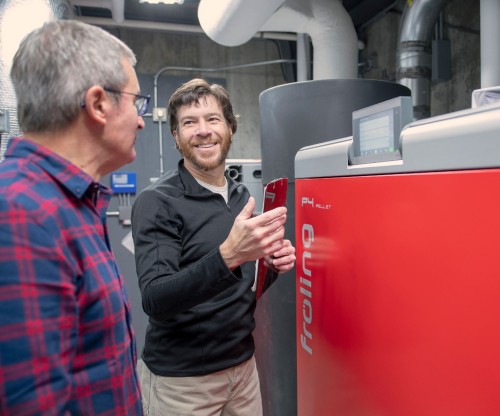Generous rebates and incentives are available for wood heating appliances of all sizes for both residential and commercial customers. View all rebates, grants, and technical assistance available for Residential, Schools and Municipalities, and Businesses.
Find an Installer and Vendor for your Project-
Visit Efficiency Vermont's List of Qualified Installers and Vendors
Visit the Feel Good Heat List of Installer and Vendors

